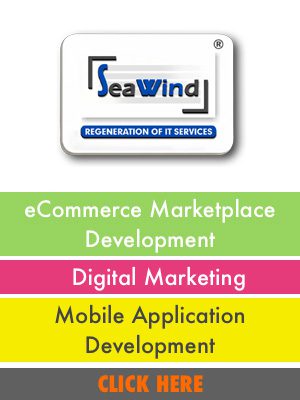In the digital age, e-commerce has revolutionized the way businesses are run. With the convenience of online shopping and the global reach of the Internet, e-commerce has become the way of the future for businesses of all sizes. In this blog post, we will explore the various aspects that make e-commerce the preferred choice of entrepreneurs and consumers.

Global reach and accessibility:
One of the main advantages of e-commerce is its ability to cross geographical boundaries. Unlike traditional brick-and-mortar stores, an e-commerce business can reach customers anywhere in the world. With a well-designed website and effective digital marketing strategies, businesses can tap into a global customer base, expanding their reach and growth potential.
Convenience and 24/7 Availability:
E-commerce offers unparalleled convenience to both businesses and consumers. By eliminating the limitations of physical store hours, customers can shop at any time that suits them. This accessibility increases customer satisfaction and increases sales. For businesses, e-commerce provides the opportunity to operate 24/7 without the need for additional staff, ultimately increasing revenue and profitability.
Cost-effectiveness and scalability:
Starting an e-commerce business requires significantly less investment compared to opening a physical store. Costs associated with rent, utilities and staffing are eliminated or significantly reduced. Additionally, e-commerce platforms and tools are readily available, offering affordable solutions for website development, inventory management and order fulfilment. As your business grows, e-commerce also allows for easy scalability, enabling you to expand your operations and reach without incurring significant costs.
Data-driven insights:
One of the most significant advantages of e-commerce is the abundance of data it generates. With the right analytics tools, businesses can gain valuable insights into customer behavior, preferences and purchasing patterns. This data can be used to optimize marketing strategies, personalize customer experiences, and make data-driven decisions to drive growth and profitability.
Enhanced Customer Experience:
E-commerce businesses have the advantage of providing personalized and tailored experiences to their customers. By analyzing customer data and using technologies like artificial intelligence and machine learning, businesses can offer personalized product recommendations, targeted promotions and seamless customer support. These factors contribute to an enhanced shopping experience, fostering customer loyalty and repeat purchases.
Integration with Social Media and Mobile Commerce:
E-commerce integrates seamlessly with social media platforms, allowing businesses to leverage the power of social networks for marketing and customer engagement. Social media platforms provide a way for businesses to showcase products, interact with customers, and run targeted advertising campaigns. In addition, the emergence of mobile commerce has further boosted e-commerce, as consumers increasingly shop via their smartphones and tablets.
Conclusion:
E-commerce has undoubtedly become the way of the future for businesses across various industries. Global reach, convenience, cost-effectiveness, scalability, data-driven insights, enhanced customer experience and integration with social media and mobile commerce are few of the many advantages it offers. As technology advances and consumer behavior evolves, e-commerce adoption is crucial for businesses to remain competitive and thrive in the digital marketplace.






